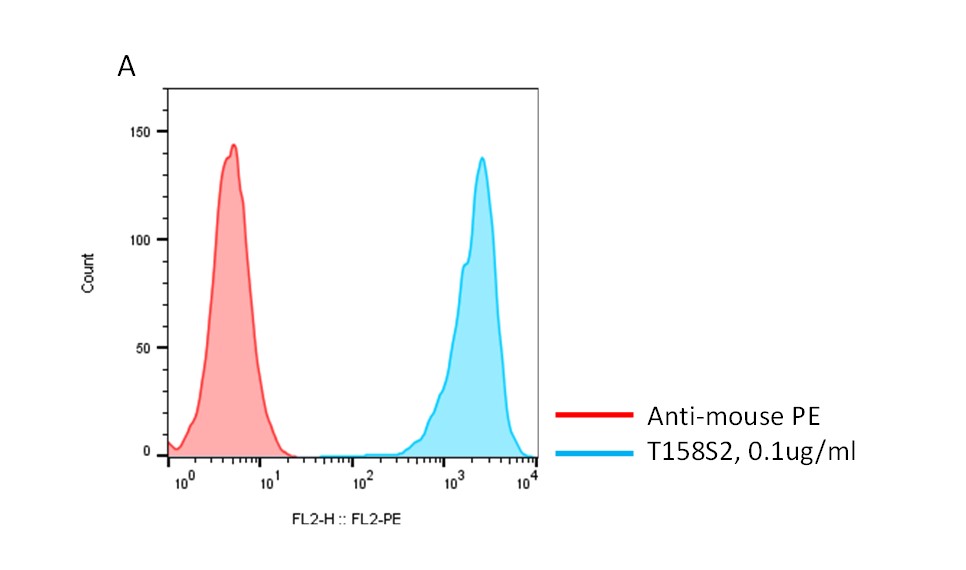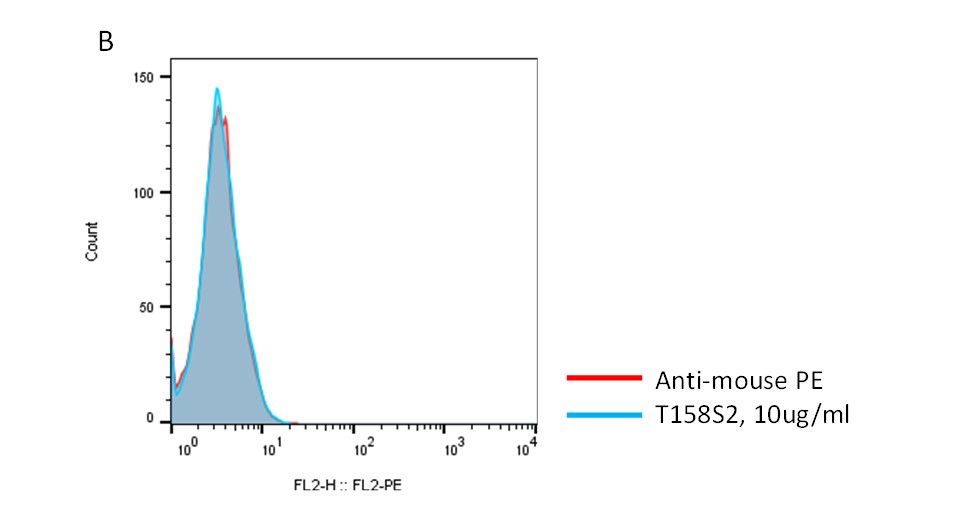
| Catalog Number | Product | Size | Price | |
|---|---|---|---|---|
| A1031-100 | Anti-human CLDN18.2, T158S2 | 100µg | $385 | Order |
| A1031-200 | Anti-human CLDN18.2, T158S2 | 200µg | $525 | Order |
| Catalog Number | A1031 |
|---|---|
| Product Name | Anti-human CLDN18.2 |
| Source | Purified mouse antibody from hybridoma |
| Clone | T158S2 |
| Species Reactivity | Human |
| Isotype | Mouse IgG2b |
| Purity | >95% |
| Formulation | 1xPBS, pH6.9. Sterile |
| Stability & Storage | 1 month at 4oC; 12 months at <-20oC; Avoid repeated freeze-thaw |
| Protein Aggregation | Not obvious on SDS-PAGE |
| Application | Flow cytometry, ELISA, cell-based assay |
| Product Datasheet: | Download PDF |
Detection of human CLDN18.2 expression on human CLDN18.2-CHO-K1 stable cell line (Cat. #C3011) using the anti-human CLDN18.2 mIgG2b (Cat. #A1031).

FACS staining of control vector transfected CHO-K1 cells with the anti-human CLDN18.2 mIgG2b (Cat. #A1031).

Claudin-18 (CLDN18) is a member of a large family of four-span transmembrane proteins called Claudins. These proteins are the essential components of the mammalian tight junctions (TJs) in epithelial cells. Claudin-18 has two splice variants, 18.1 and 18.2. While CLDN18.1 is specifically expressed in the lung tissue, CLDN18.2 expression in normal tissue is more restricted and is only detected in small patches of stomach mucosal. CLDN18.2 expression is elevated in many types of epithelial cancers including stomach, esophagus, pancreatic and ovarian cancers. The expression of CLDN18.2 is not only detected in primary tumors, but also in the metastatic sites. Therefore, CLDN18.2 is an ideal target for monoclonal antibody-based cancer therapies.
Tureci O. et al. Claudin-18 gene structure, regulation, and expression is evolutionary conserved in mammals. Gene. 481(2): 83-92. 2011.
Sahin U. et al. Claudin-18 Splice Variant 2 Is a Pan-Cancer Target Suitable for Therapeutic Antibody Development. Clin. Cancer Res. 14(23):7624-7634. 2008.
Niimi T. et al. Claudin-18, a Novel Downstream Target Gene for the T/EBP/NKX2.1 Homeodomain Transcription Factor, Encodes Lung- and Stomach-specific Isoforms Through Alternative Splicing. Mol. Cell. Biol. 21(21): 7380-7390. 2001.